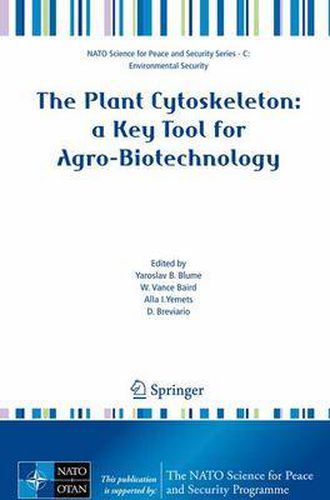Readings Newsletter
Become a Readings Member to make your shopping experience even easier.
Sign in or sign up for free!
You’re not far away from qualifying for FREE standard shipping within Australia
You’ve qualified for FREE standard shipping within Australia
The cart is loading…






This title is printed to order. This book may have been self-published. If so, we cannot guarantee the quality of the content. In the main most books will have gone through the editing process however some may not. We therefore suggest that you be aware of this before ordering this book. If in doubt check either the author or publisher’s details as we are unable to accept any returns unless they are faulty. Please contact us if you have any questions.
Essential processes in biology such as cell and nuclear division, development, intracellular transport and physiological response, rely on the perception of environmental and intracellular signals and their transduction to subcellular targets. The mechanisms by which these signals are received by cells and transduced towards the proper targets by cytoskeletal components constitute one of the most important and rapidly developing areas in modern plant biology. In addition, fundamentally important responses of plants to biotic and abiotic factors also involve signalling to and through the cytoskeleton, which helps explain the current interest of biotechnology in this field of fundamental research. Manipulation of cytoskeletal components, the microtubules and microfilaments, had, until recently, not been a priority issue for plant biotechnology. However, given the fundamental role of the cytoskeleton during plant growth and development, the potential for biotechnological applications is immense. The NATO Advanced Research Workshop, The Plant Cytoskeleton: Genomic and Bioinformatic Tools for Biotechnology and Agriculture was held in Yalta, Ukraine, from September 19 to 23, 2006 - which continued the tradition of the first two International Symposia Plant Cytoskeleton: Molecular Keys for Biotechnology (Yalta, Ukraine, 1998) and The Plant Cytoskeleton: functional diversity and biotechnological implications (Kiev, Ukraine, 2002).
$9.00 standard shipping within Australia
FREE standard shipping within Australia for orders over $100.00
Express & International shipping calculated at checkout
This title is printed to order. This book may have been self-published. If so, we cannot guarantee the quality of the content. In the main most books will have gone through the editing process however some may not. We therefore suggest that you be aware of this before ordering this book. If in doubt check either the author or publisher’s details as we are unable to accept any returns unless they are faulty. Please contact us if you have any questions.
Essential processes in biology such as cell and nuclear division, development, intracellular transport and physiological response, rely on the perception of environmental and intracellular signals and their transduction to subcellular targets. The mechanisms by which these signals are received by cells and transduced towards the proper targets by cytoskeletal components constitute one of the most important and rapidly developing areas in modern plant biology. In addition, fundamentally important responses of plants to biotic and abiotic factors also involve signalling to and through the cytoskeleton, which helps explain the current interest of biotechnology in this field of fundamental research. Manipulation of cytoskeletal components, the microtubules and microfilaments, had, until recently, not been a priority issue for plant biotechnology. However, given the fundamental role of the cytoskeleton during plant growth and development, the potential for biotechnological applications is immense. The NATO Advanced Research Workshop, The Plant Cytoskeleton: Genomic and Bioinformatic Tools for Biotechnology and Agriculture was held in Yalta, Ukraine, from September 19 to 23, 2006 - which continued the tradition of the first two International Symposia Plant Cytoskeleton: Molecular Keys for Biotechnology (Yalta, Ukraine, 1998) and The Plant Cytoskeleton: functional diversity and biotechnological implications (Kiev, Ukraine, 2002).